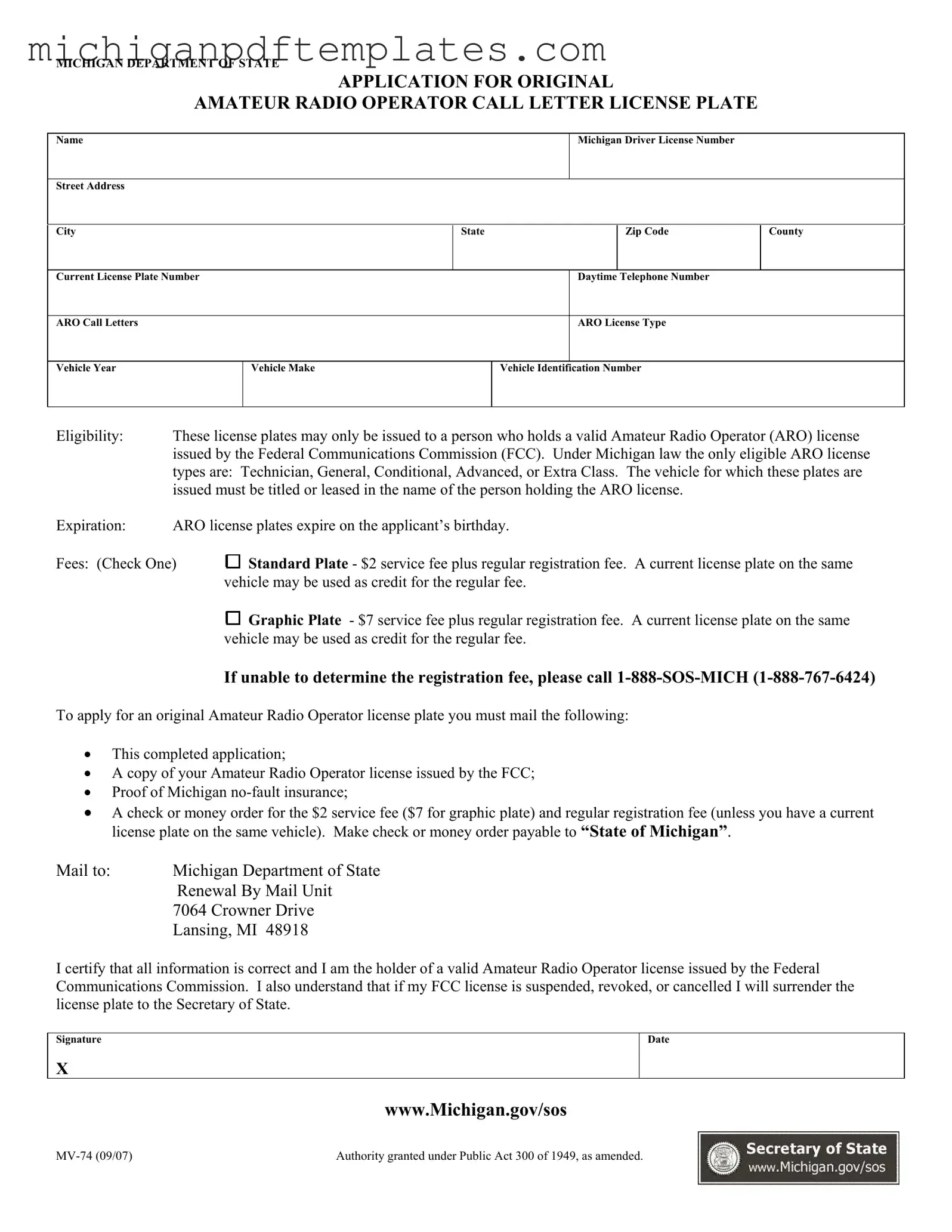Fill in Your Michigan Mv 74 Form
The Michigan MV 74 form is an application for an original Amateur Radio Operator call letter license plate. This specialized plate is available exclusively to individuals holding a valid Amateur Radio Operator (ARO) license issued by the Federal Communications Commission (FCC). If you meet the eligibility requirements, take the next step by filling out the form below.
Get Your Form Now

Fill in Your Michigan Mv 74 Form
Get Your Form Now

Get Your Form Now
or
▼ PDF Form
Finish this form quickly and move on
Fill in and complete Michigan Mv 74 online quickly.